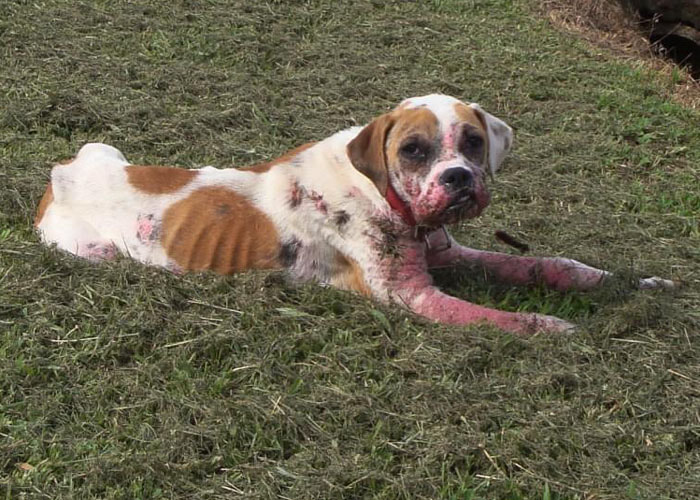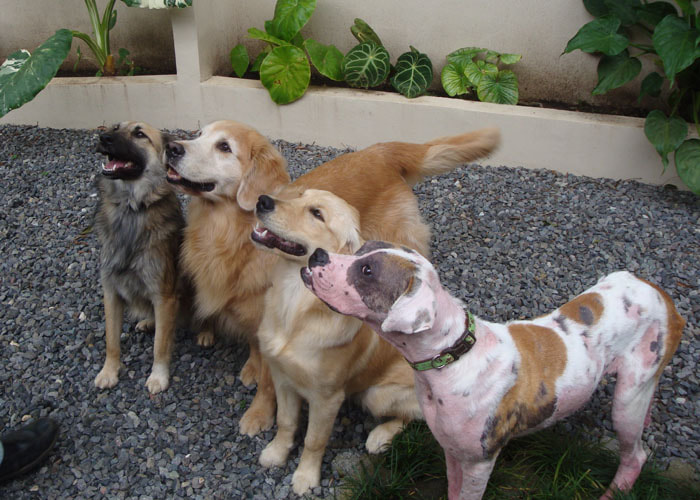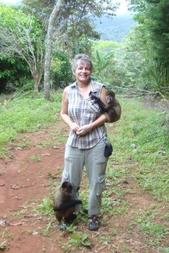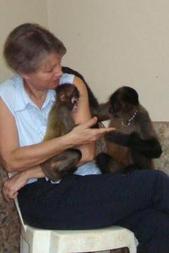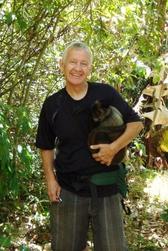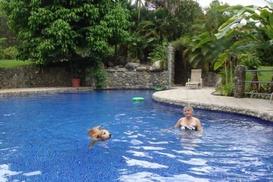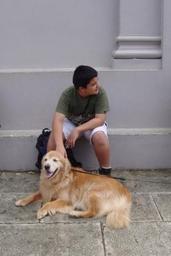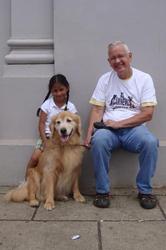We rescued two street dogs while we were living in Costa Rica. Milagro (Spanish for "Miracle") flew back with me on a trip to the States and found a wonderful home through Northwest Boxer Rescue. Magdalena joined our lives like she had always been family and returned to Oregon with us several years later.
While in Costa Rica I raised over $13,000 (through crowd funding, auctions, and more) for spaying/neutering local street dogs.
While in Costa Rica I raised over $13,000 (through crowd funding, auctions, and more) for spaying/neutering local street dogs.
In December of 2012 Costa Rica became the first country on the American continent to prohibit hunting for sport. The final vote in Congress was unanimous, and the bill was signed into law by President Laura Chinchilla. (Costa Rica also celebrated 72 years without a military in December of 2020.)
The new law may salvage what little remains of endangered wildlife like the jaguar and tapir, as well as the spider monkey population (which decreased 72% between 1995 and 2007), although subsistence hunting is still permitted by indigenous people. At least two of the six spider monkeys in our wildlife rehabilitation center were orphaned when their mothers were killed for bushmeat.
Read more in The Monkey Diaries blog at www.spidermonkeyrehab.com
So, what's a Golden Retriever to do in Costa Rica? Become an ambassador for the breed! There are exceptions to every generalization, but it's fair to say that most Costa Ricans (Ticos) are afraid of large dogs...perhaps justifiably, since many are guard dogs. (We had a college professor refuse to get out of the car until Evie was locked in the bedroom.) In addition, most small dogs are street dogs, with little discernable parentage.
It was Evie's job to schmooze and many Ticos now know the English words "Golden Retriever."
We also learned the Spanish expression "que lindo" which translates to "how lovely."
We also learned the Spanish expression "que lindo" which translates to "how lovely."
